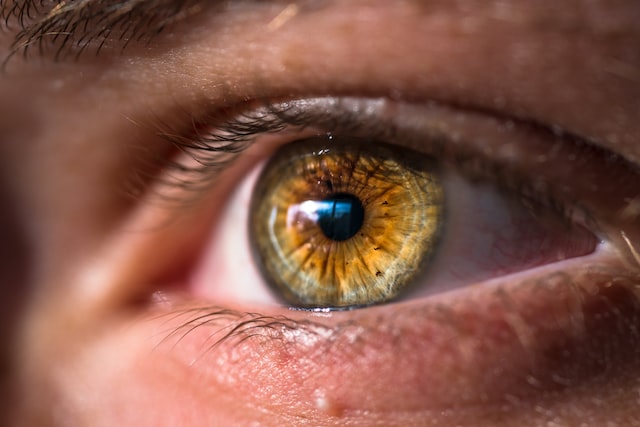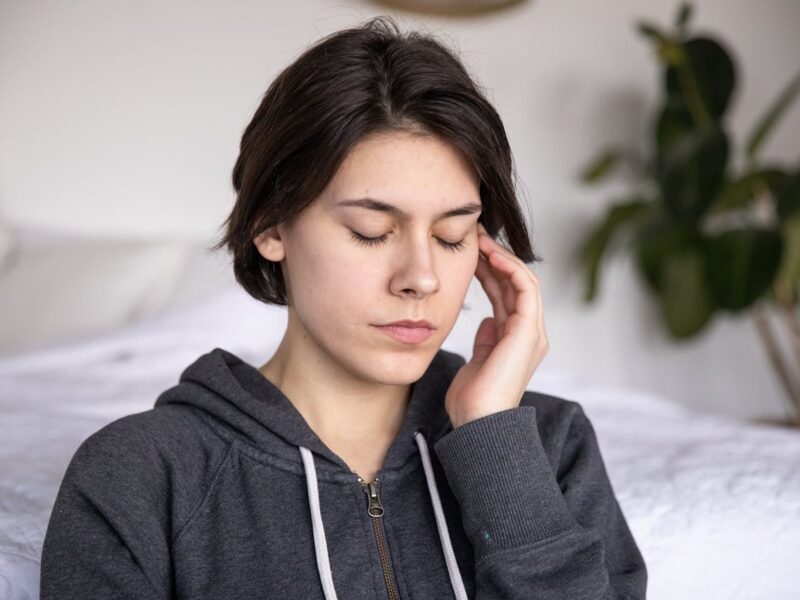Floaters are the dark specks that appear in your vision and are most commonly caused by pieces of debris floating in the jelly-like substance of your vitreous humor.
Floaters are harmless and usually fade on their own over time. But if they increase or you notice them accompanied by light flashes, you should get them checked by an eye doctor immediately.
Eye floaters are moving spots, weblike lines, or rings in your field of vision. They frequently seem like black or gray specks that move when your eyes move or when you try to look at them directly. Eye floaters, which seem like objects in front of your eyes, are actually in your eye. You might look for ways how to reduce floaters in eyes naturally?
Contents
Drink More Water
Drinking plenty of water is a great way to improve your eye health. This is because water helps flush out toxins and debris from your body.
Since the vitreous humor in your eyes is made up of 98% water, dehydration can cause eye floaters to develop.
Eat a Healthy Diet
Eye floaters are tiny bits of debris that appear like black or grey specks, strings, or cobwebs in your vision. They drift about when you move your eyes and can cause significant visual discomfort and stress.
They are common as we age but can also be caused by various other conditions. So, you must consult an eye doctor if they’re persistent and interfere with your daily life.
Get Enough Sleep
One of the essential things you can do for your health is to get adequate sleep. It influences all aspects of your life, from how well you think and act to how often you fall ill.
Not getting enough sleep can lead to various issues, including depression and anxiety, according to research. It can also increase your risk of obesity and diabetes.
Exercise
Exercise can improve blood flow to your eyes, which may help reduce eye floaters. Naturopathic doctors also recommend eye exercises to promote better vision and minimize the need for glasses.
Some studies have shown that these exercises can help relieve digital eye strain, which can often cause floaters. However, they cannot cure common eye conditions like myopia and hyperopia.
Reduce Your Stress
One of the most important ways to reduce eye floaters is to reduce your stress. You can do this by reducing your screen time, exercising regularly, and taking breaks to rest your eyes from being in front of a computer or other device.
Anxiety is also known to make people hypersensitive, which can make floaters more noticeable. This is because stress can cause their brain to think something is wrong with their eyes.
Sometimes the best cure is to do nothing. Eye floaters will often diminish or vanish on their own. Your brain will eventually learn to disregard them if they don’t disappear. As a result, your eyesight will start to change. You won’t notice them as much.
Managing eye floaters is the least intrusive way to safeguard your vision. If the floaters become bothersome or impede your vision, consult your eye doctor about your alternatives.
Change Your Eyeglasses
Changing your eyeglasses can make a big difference to the way you see. Whether you want something more conservative and sleek or a bolder, edgier look, there’s an option for everyone.
It’s also worth considering anti-fog coating for your lenses, which can prevent your glasses from fogging and making them harder to see. Blue light spectacles can also help protect your eyes from the harmful effects of UV radiation if you spend a lot of time staring at digital devices. This is especially crucial for the younger generation.
Try Hyaluronic Acid Eye Drops
Hyaluronic Acid Eye Drops are an effective solution for reducing eye floaters. They are formulated to retain moisture in the tear film, provide lubrication for your eyes and promote healing.
High-molecular-weight hyaluronic acid eye drops represent an alternative to autologous serum eye drops (ASED) in patients with severe dry eye disease. They are less costly than ASED, have no risk of infection, and can be substituted temporarily when ASED is unavailable.
Take a Supplement
Eye floaters are dark or transparent specks that appear in your vision and tend to drift away as you look at them. They are caused by small pieces of debris floating in the jelly-like substance inside your eye called the vitreous.
The vitreous contains water, hyaluronic acid, and collagen fibers. Over time, it loses these nutrients, causing the collagen fibers to clump together and form floaters that cast shadows on your retina.
Change Your Eyeglasses Color
Floaters are tiny particles that form when the vitreous gel inside your eye shrinks over time. They often look like specks, dots, lines, or squiggles in your field of vision.
Most floaters disappear naturally over time and do not cause any harm to your vision. However, if you notice more floaters or flashes of light than usual, it’s a good idea to visit your doctor.
Wear Sunglasses
Wearing sunglasses year-round help protect your eyes from ultraviolet rays, which can cause eye damage. It also improves your chances of preventing eye problems like cataracts and macular degeneration.
Sunglasses that offer 100 percent UV protection are the best choice. Polarized lenses also reduce glare, making it easier to see in sunlight.



